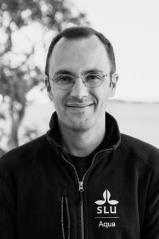Nuno Prista

Presentation
I am a fisheries biologist with a strong background in applied statistics and R programming. I started my career researching estuarine fish communities in Portugal and then enrolled an MSc in Mathematics Applied to Biological Sciences at the Department of Mathematics of the Instituto Superior de Agronomia (Lisboa, Portugal). My PhD focused on fish biology of meagre (Argyrosomus regius) and its fisheries and involved work at the Institute of Oceanography (Dr. Maria José Costa, Faculty of Sciences of University of Lisbon, Portugal) and the Center for Quantitative Fisheries Ecology (Dr. Cynthia Jones, Old Dominium University, Virginia USA) and the support of local fishing communities and fish merchants. During my PhD I was trained in fish biology (age, growth and reproduction) and learned about the dynamics of small-scale fisheries in Southern Europe. I later joined the Portuguese Institute for Sea and Atmosphere (IPMA, formerly IPMAR) and started working on more EU-level large scale fisheries issues under supervision of Dr. Ernesto Jardim and Dr. Manuela Azevedo. At IPMA, I started working on sampling design and estimation of commercial fisheries within the ICES area. In late 2015 I joined the Institute of Marine Research in Lysekil (Department of Aquatic Resources of the Swedish University of Agricultural Sciences) where I presently coordinate the Sampling Design and Analysis Unit. The institute is a great working place and the unit is responsible for the sampling design, estimation and data analysis of several Swedish marine fisheries, maintaining close relations with international partners through routine participation in ICES initiatives.
Teaching
Since 2017 I have been teaching the modules of "Introduction to Data Analysis" and "Introduction to Sampling Design" of the Principles of Fisheries Science course of SLU. I have also been (co-)responsible for SLU Aqua project "Cooperating to improve sampling design, data management, estimation and optimization of FoMA activities" (2017-), a project that promotes the use of statistically sound sampling and estimation in SLU Aqua surveys and uses the online learning platform DataCamp to train SLU Aqua students and employees in the area of data analysis and programming.
Research
My research interests are linked to environmental analysis, including:
Statistically sound sampling of fisheries catches: Improvement of the statistical design of commercial (on-shore and on-board) and recreational sampling programmes; standardization of sampling procedures and data storage across fleets; development of quality assurance procedures and robust estimation methods for fisheries data (landings and discards); Optimization of sampling programmes.
Statistical time series analysis: applications of time and frequency domain methods to the study of fish populations.
Data-poor fisheries: development of robust statistical process control frameworks and methodologies applicable to the research and management of fisheries situations when there is little funding and/or little data.
Sciaenid fisheries and life history: research on the fishery, age and growth, and reproduction of the meagre, Argyrosomus regius, in European waters
Selected publications
Vieira M., Amorim M.C.P. , Sundelöf A., Prista N., Fonseca P.J. (2020). Underwater noise recognition of marine vessels passages: two case studies using hidden Markov models. ICES Journal of Marine Science, 77 (6): 2157–2170. Link.
Veiga-Malta T., Szalaj D., Angélico M. M., Azevedo M., Farias I., Garrido S., Lourenço S., Marçalo A., Marques V., Moreno A., Oliveira P. B., Paiva V. H., Prista N., Silva C., Sobrinho-Gonçalves L., Vingada J., Silva A. (2019). First representation of the trophic structure and functioning of the Portuguese continental shelf ecosystem: insights into the role of sardine. Marine Ecology Progress Series 617-618:323-340. Link.
Fernandes A.C., Prista N., Azevedo M. (2017). Discards from the Portuguese bottom otter trawl operating in ICES Division 27.9.a (2004-2015). Relatórios Científicos e Técnicos do IPMA 18, 18p + Annexes. Link.
Fernandes A.C., Pérez N., Prista N., Santos J., Azevedo M. (2015). Discards composition from Iberian trawl fleets. Marine Policy 53: 33-44. Link.
Prista N. (2014). Argyrosomus regius (Asso, 1801) Fishery and Ecology in Portuguese Waters, with Reference to its Relationships to other European and African Populations. PhD Thesis. University of Lisbon, Lisbon. Portugal. Link.
Prista N., Gordo L., Costa J.L., Costa M.J., Jones C. (2014). Reproductive phase determination in male meagre (Argyrosomus regius, Sciaenidae): testis development and histologic corroboration of a gross anatomical scale. Scientia Marina 78:65–80. Link.
Prista N., Diawara N., Costa M.J., Jones C.M. (2011). Using SARIMA to assess data-poor fisheries: case-study with a sciaenid fishery off Portugal. Fishery Bulletin 109:170–185. Link.
Links
If you want to know more about a fantastic fish and its small-scale fishery, take a look at my PhD thesis. Also, take some time to consider the importance of researching and monitoring data-poor fisheries.